Leonard Nimoy: 10 facts you didn't know about Mr. Spock
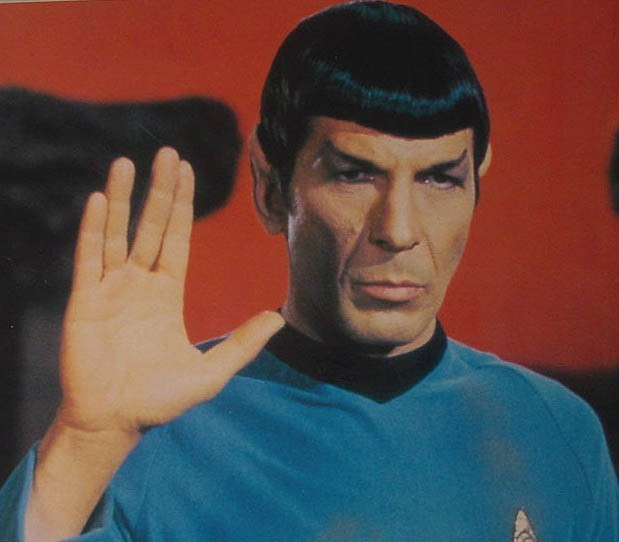
Mr. Spock is one of the world's most loved and most enduring sci-fi characters. A green-blooded, human-Vulcan hybrid, he was Captain Kirk's loyal aide, and his conscience, and second in command of the Star Ship Enterprise.
Logical, detached and a keen observer of human emotion, the internal conflict borne of his opposing human and Vulcan traits, rendered him a veritable enigma - with oddly pointed ears. But how well did you really know Mr. Spock? IBTimes UK went on our own mission to discover ten obscure facts you may not know about the world's most loved Vulcan.
1) Leonard Nimoy was not the first choice to play Mr. Spock
In fact DeForest Kelley, who went on to play Dr.'Bones' McCoy was first offered the role of the "alien from Mars" in 1964, but turned down the role. The creator of the Star Trek series Gene Roddenberry, considered Adam West to portray the Enterprises' resident scientist, however he was shooting for the film Robinson Crusoe on Mars and was unavailable for the role. Nichelle Nichols was also considered for the role of Spock but was later cast as Lieutenant Ahura. Roddenberry knew of a young actor named Nimoy who had made a guest appearance in his pilot The Lieutenant. It was on seeing Nimoy's thin face and sharp features that he decided on the actor for the role. As a fallback in case Nimoy also declined the role, Roddenberry had planned to approach Martin Landau.
2) Mr. Spock's skin colour was originally meant to be red
In Roddenberry's 1964 pitch for Star Trek, he is described as "probably half Martian, he has a slightly reddish complexion and semi-pointed ears". The idea was abandoned when they realized that on black-and-white TVs, Spock's skin would look black. Another factor was that Leonard Nimoy would have needed several hours in makeup every morning. Eventually, it was decided to give Spock a yellow-tinge instead.
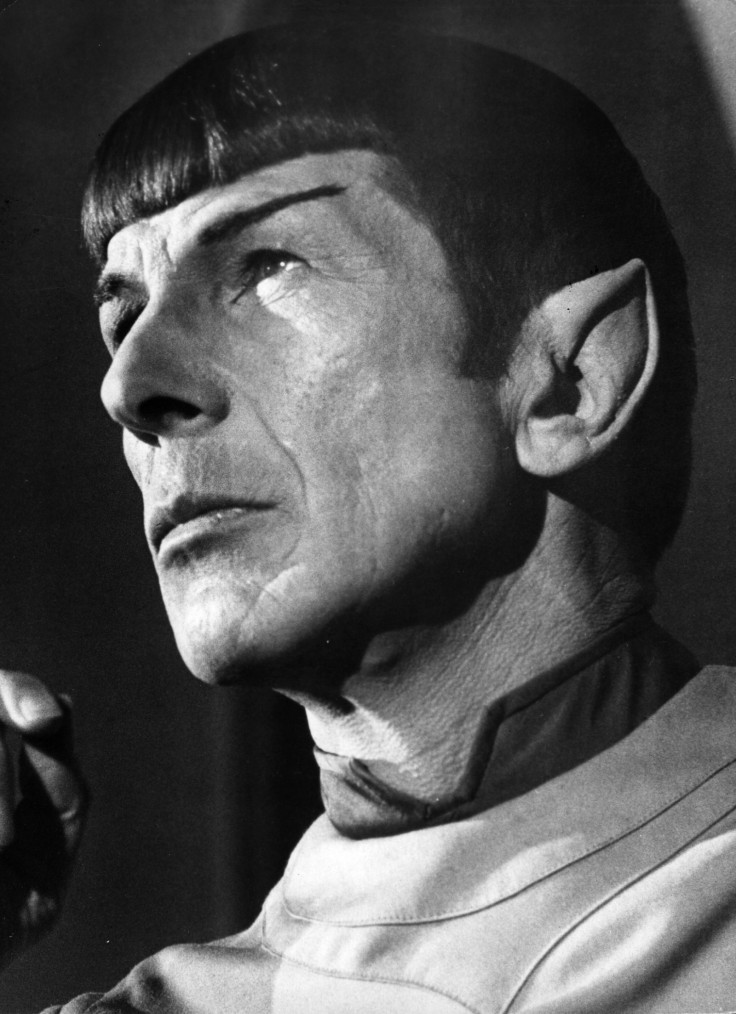
3) Spock originally didn't eat food
Early versions of the scripts had the character ingesting energy through a plate in his stomach. Writer Samuel A. Peeples told Roddenberry these attributes made Spock too alien, and suggested "he should at least be half-human and have the problems of both sides," believing the human traits made the character more interesting and able to comment on the human condition with more conviction.
4) Spock did not get on with his Dad
In "Journey to Babel" (1967) we meet Spock's parents Sarek (Mark Lenard), the Vulcan ambassador to the Federation, and Amanda Grayson (Jane Wyatt), a human. Sarek was opposed to Spock's decision to join Starfleet, rather than attend the Vulcan Science Academy, and the relationship between the two was strained and often turbulent, although rooted in an underlying respect and carefully restrained love for each other. Spock was always more inclined towards his Vulcan heritage and derided human emotion perceiving it as illogical. The 1973 animated series episode "Yesteryear" shows seven-year-old Spock consciously choosing to pursue a Vulcan lifestyle devoted to logic and suppressing emotion.
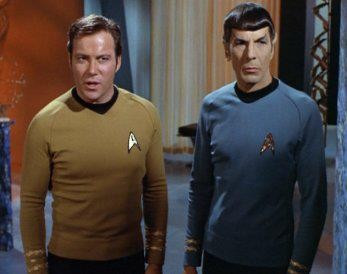
5) The famous interracial kiss was originally meant to be between Spock and Uhura
Star Trek is famed for featuring the first interracial kiss on television, between Captain Kirk and Lt. Uhura. But in the episode's actual script, the kiss was meant to have been between Uhura and Spock,. According to Nichelle Nichols who played Uhura, Shatner pulled rank. "My understanding is Bill Shatner took one look at the scene and said, 'No you will not! If anyone's going to be part of the first interracial kiss in television history, it's going to be me!' So they rewrote it."
Spock and Uhura did however have a brief romance in Star Trek the movie.
6) Spock was a great advocate for PETA
One of his human traits was revealed in his affection for animals. As a boy he had a sehlat and horta allowed him to approach and meld with it. Spock displayed a fondness for Tribbles who also seemed attached with him. Spock is strongly opposed to taking a life except in dire sitauiotnsor if the Captain's life is endangered. He is a vegetarian, possibly for philosophical as well as for dietary reasons, and has no taste for blood.
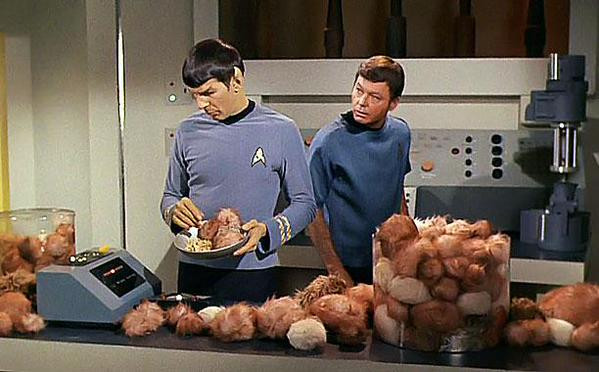
7) Leonard Nimoy did not want to play Spock in Star Trek II: The Wrath of Khan
Nimoy was finally persuaded to reprise the iconic role, when he was promised he would have "the greatest death scene in motion pictures." And he did.
8) Spock's death in Star Trek II: The Wrath of Khan sparked a public outry.
Spock was supposed to die early in the film much like Janet Leigh in Psycho. However, the script was leaked and a backlash from fans forced them to rewrite the death into the final act. Fans were in any case angry about the death of Spock and sent death threats to members of the production team right up until the premiere. Robert Sallin got messages on his answering machine like "You kill Spock and we'll kill you!"
9)Spock died in San Francisco
The final scene with Spock's body on the Genesis planet was filmed at Golden Gate Park in San Francisco. In the scenes where actors Kirstie Alley and Nimoy are speaking in Vulcan, they're actually using English on the set. The sound designers made up Vulcan based on their lip movements and had them dub it back in Vulcan.
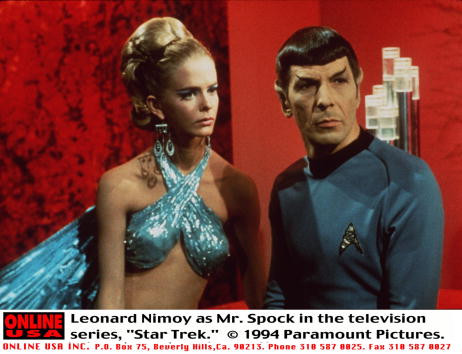
10) Spock was a sex symbol
In 1967, TV Guide featured an article title called "Mr. Spock is Dreamy!" which explored the sexual appeal of Spock. The article read: "Through the agency of Mr. Spock, Star Trek has been capitalizing upon a fact not generally known among the male half of the population. Women think being smart is sexy!"
Nimoy himself was bewildered by the public interest in Spock as headshots of Spock became popular fan souvenirs, particularly the rare ones of the actor laughing. A decade after the show was cancelled Nimoy recalled: "The Star Trek phenomenon continues to amaze and confound me. It was incredible, and it still is, although it is gentler now than it used to be. For a time, it was hysterical – it was so wild I had to be very careful where I went. If I went to a restaurant, I had to plan my entrances and my exits so I wouldn't be mobbed and hurt. Same thing in hotels and airports – any public place. It isn't that hysterical any more, but it is still a potent force."

© Copyright IBTimes 2025. All rights reserved.






















